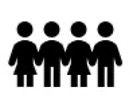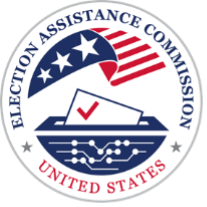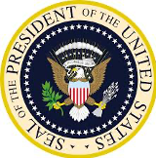 Infrastructure and Budget Reconciliation Infrastructure and Budget Reconciliation Senate Majority Leader Senate Majority Leader Chuck Schumer (D-NY) announced on July 13th an agreement on a blueprint for a $3.5 trillion spending package that includes many parts of Presidents Biden's Jobs and family plan. This package will advance through the filibuster-proof reconciliation process.
- Budget Reconciliation is a tool that makes legislation easier to pass in the Senate; a reconciliation bill only needs a simple majority (51) in the Senate.
Only top level numbers have been shared, but the package will include:
- $400 Billion to support Home and community based services
- Expanding Medicare to cover vision, dental, and hearing for seniors
- An extension of the expanded Child Tax Credit, monthly payments for most American families
- Funding to build and rehabilitate millions of affordable housing units
This is a companion for the bipartisan infrastructure bill. That will invest $579 billion in new spending over five years on improving roads, bridges, public transit, and airports, as well as the country's broadband, water, and power infrastructure.
- Infrastructure means the buildings, roads, bridges, power lines, and other things our country needs to work every day. It can also include other systems that make our country work, like schools, healthcare, and other government services.
- Bipartisan: When people of both political parties (Democratic and Republican) work together on a law.
Action Steps:
- The most critical need is for education and advocacy around Home and Community Based Services. Members of Congress need to be hearing continuously how important the $400 billion dollar investment is to their constituents.
It is fair to reach out to every member of Congress and share how important the Better Care Better Jobs Act (S.2210, H.R. 4231) is.
- It is true that this will move in a partisan manner (with only Democratic votes), but the issues related to HCBS and Medicaid will be important to all members of Congress going forward and education on this issue is valuable.
- If you have a Democratic Senator(s)
- Check to see if they are one of the 40 cosponsors
- If yes, thank them and share why it is so important to make sure the final package includes the $400 billion for HCBS.
- If they are one of the 10 that have not yet cosponsored, reach out and share why HCBS is important and offer to answer any questions as they consider becoming a cosponsor.
- Remember that in order for it to pass through budget reconciliation ALL 50 Democratic Senators will have to support.
- If you have a Democratic Representative
- Check to see if they are a cosponsor
- If yes, thank them and share why it is so important to make sure the final package includes the $400 billion.
- If they have not yet cosponsored, reach out and share why HCBS is important offer to answer any questions as they consider becoming a co-sponsor.
- The higher the number of cosponsors in the House, the greater the chance to keep ALL 50 in the Senate.
Extra ways to make an impact:
- Use social media to raise the importance of this legislation
- Use #BetterCareBetterJobs
- Share a personal story: Members of Congress and their staff from every state need to understand what HCBS mean to people in their state. AUCD is sharing these stories; we are looking to have stories to share from every state. Please send your story about HCBS to [email protected]
- Short is best (3-5 sentences)
- A picture helps
- Stories can come from people with disabilities, family members, allies and professionals working in these systems.
 Supporting Our Direct Care Workforce and Family Caregivers Supporting Our Direct Care Workforce and Family CaregiversSenator Tim Kaine (D-VA) introduced the Supporting Our Direct Care Workforce and Family Caregivers Act on July 14th. This bill would authorize over $1 billion in supporting the direct care workforce and family caregivers. The bill aligns with President Biden's American Jobs Plan, which calls for substantial investments to meet the growing demand for home and community-based services.
Plain language:
- A bill to support the HCBS workforce has been introduced.
What it means to you:
- Investments in HCBS will impact how the workforce is supported. This language provides some guidance on possible implementation.
Action steps:
- Educate your Senators on the needs of the HCBS workforce
 Appropriations AppropriationsMembers of Congress continue to work on creating a Fiscal Year 2022 budget package. This week the Labor, Health and Human Services, Education, and Related Agencies subcommittee sent their appropriations bill to the full committee along a party line vote. The bill report for the Fiscal Year 2022 (FY22) Labor, Health and Human Services, Education & Related Agencies (Labor-HHS) reflects significant proposed increases for several programs:
|
Program
|
FY 21 Enacted
|
FY 22 AUCD's Request
|
FY 22 President's Budget Proposal
|
FY 22 House
|
|
Autism and other DD
|
$53.844 million
|
$56.5 million
|
$57 million
|
$57,344,000
|
|
LENDs
|
$36.245 million
|
$38 million
|
Included in $57 million for Autism and other DDs
|
$38,245,000
|
|
UCEDDs
|
$42.119 million
|
$45 million
|
$47 million
|
$47,173,000
|
|
NCBDDD
|
$167 million
|
$180 million
|
$173 million
|
$186,810,000
|
|
TPSIDs
|
$13.8 million
|
$14 million
|
$15.18 million
|
$15,180,000
|
|
PNS
|
$12.25 million
|
$14 million
|
$13 million
|
$13,100,000
|
|
NICHD
|
$1.59 billion
|
$1.708 billion
|
$1.942 billion
|
$1,689,786,000
|
Plain language:
- Congress is working on passing a budget.
What it means to you:
- Many AUCD programs get their funding from the federal appropriations process.
- Appropriations is the act of setting aside money for a specific program from the federal budget.
Action steps:
 Voting Voting Attention to voting rights and access continues at both state and national levels President Biden spoke on July 13, 2021 at the National Constitution Center Philadelphia, Pennsylvania on Protecting the Sacred, Constitutional Right to Vote. VP Harris meets with disability advocated on July 14, details of the meeting are in the Vice President's remarks. Plain language:
- More attention is being paid to voting rights.
What this means to you:
- There can be many barriers to voting for people with disabilities. Elevating the most current data and reporting can help as state and federal voting legislation is considered.
 Biden-Harris Administration Biden-Harris Administration
On July 10th, the Social Security Administration (SSA) shared a new organization chart reflecting, Biden appointee Kilolo Kijakazi, as acting Commissioner.
Kilolo Kijakazi joined the Social Security Administration on January 20th and had been serving as Deputy Commissioner of the Office of Retirement and Disability Policy (ORDP). Kilolo, who holds a doctorate in Public Policy from George Washington University.
Plain language:
- President Biden continues to appoint people who will serve our country during his Administration.
What it means to you:
- The transition creates new leaders in federal agencies. The work of these agencies will create changes in federal policy that impacts the lives of people with disabilities and their families.
Action steps:
- Continue to follow news from the Biden Administration at whitehouse.gov.
 COVID-19 Vaccine Guidance COVID-19 Vaccine Guidance
On July 8th, the CDC and FDA issued a joint statement on COVID-19 Vaccine Boosters sharing that Americans who have been fully vaccinated do not need a booster shot at this time. The FDA, CDC, and NIH will continue to review new data as it becomes available and will keep the public informed. They are prepared for booster doses if and when data demonstrates that they are needed. On July 12th, the FDA updated guidance to reflect a link between the Johnson & Johnson Covid-19 vaccine inoculations and Guillain-Barré Syndrome, a form of progressive paralysis that is generally reversible. The agency said there have been about 100 preliminary reports of GBS, as the condition is often called, in people who have received the J&J vaccine. To date, about 12.8 million doses of the J&J vaccine have been used in the United States, suggesting a rate of about one case of GBS per 128,000 people vaccinated. Plain language:
- COVID vaccines continue to be safe and effective.
What it means to you:
- We continue to learn more about the effectiveness and safety of the COVID vaccines.

Vaccine Distribution
Because of the elevated risk of serious illness and death due to COVID-19, vaccination is critically important for people with disabilities. However, we know that many people with disabilities and the direct care staff that support them continue to face significant barriers to getting vaccinated. While the nation did not reach President Biden's goal of 70% of eligible adults receiving at least one dose of the vaccine by July 4th, work at the federal, state, and local levels continues.
Plain language:
- Work is happening to make sure all people can get the COVID-19 vaccines. If you have been vaccinated there are now fewer restrictions.
What it means to you:
- Work is happening to make sure everyone can get their COVID-19 vaccine and feels safe doing so.
Action steps:
- Vaccine Resources and Information
- The National Center on Disability in Public Health has new resources to help support persons with disabilities, their family members, and the professionals who support them get vaccinated:
- Disability Information and Access Line (DIAL) is now available to help people with disabilities get vaccinated. The DIAL's trained staff is standing by to:
- Help find local vaccination sites
- Assist with making vaccination appointments
- Connect callers to local services - such as accessible transportation - to overcome barriers to vaccination
- Provide information and resources to answer questions and address concerns about the vaccines
- Connect callers to information and services that promote independent living and address fundamental needs, such as food, housing, and transportation.
- The Public Health Communications Collaborative has a new section of their "Answers to Tough Questions about Public Health" on the Delta and other variants of COVID-19 to support your vaccine efforts.
- The VaxFactsDDNY Project at the Rose F Kennedy UCEDD and the Strong Center for Developmental Disabilities developed a survey to learn about parent preferences for getting vaccines for their child with a disability. This information will be used to address inequity in vaccine information and access. There is a choice to complete the survey in English, Spanish, Korean, Chinese, Bengali, or ASL.
- HHS We Can Do This COVID-19 public education campaign has a Toolkit for People with Disabilities, which includes resources on COVID-19 vaccination for people with disabilities and the organizations and individuals who support them.
- Share #AUCDSleeveUP messaging on Twitter, Facebook, Instagram
- Check out the COVID-19 vaccine resources from the Center for Dignity in Healthcare for People with Disabilities, and consider sharing them with your state or local health departments.
 AUCD Policy Talk
Have a personal or professional connection to disability policy? Submit a blog post to AUCD Policy Talk!
 #AUCDSleeveUp Tuesdays with Liz Contest #AUCDSleeveUp Tuesdays with Liz Contest
We are excited to announce the new #AUCDSleeveUp Tuesdays with Liz Contest! We are looking for short videos from persons with disabilities, their family members, and other friends of the disability community sharing why you got the COVID-19 vaccine! Videos will be posted to AUCD social media and available for you and others to share with your own social media. The top three videos with the most likes, comments, and shares on social media will *win* AUCD gear and the person with the top video will also win an interview on a Tuesdays with Liz episode! Videos will be accepted until Friday July 16th and will be featured on the Tuesday with Liz YouTube Channel in this playlist.
Submit your #AUCDSleeveUp vaccine story today!
#AUCDSleeveUp TWL Contest Rules:
- Videos must be less than one minute long.
- Videos should show the face(s) of the person(s) speaking.
- Say your name, how you are a part of the disability community (person with a disability, family member, support professional), and why you got the COVID-19 vaccine. For example, "Hi, my name is Liz and I am a person with a disability. I got my COVID-19 vaccine because I want everyone to be healthy and to see our families and friends again."
- We ask that you communicate as clearly as possible, so that we can add captions.
- Have fun with it!
Did you know that Liz has a new YouTube Channel? You can help spread her message by:
|
